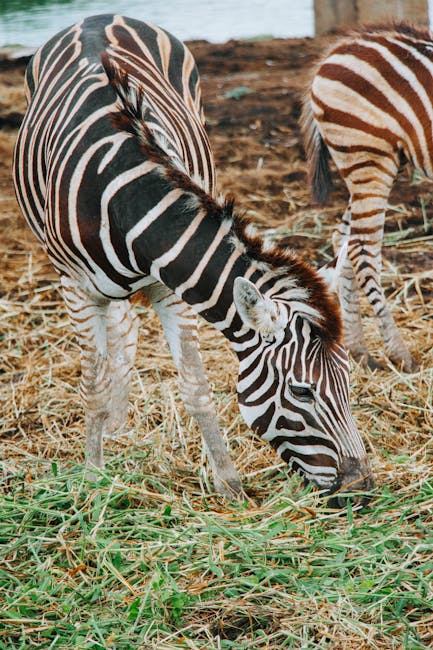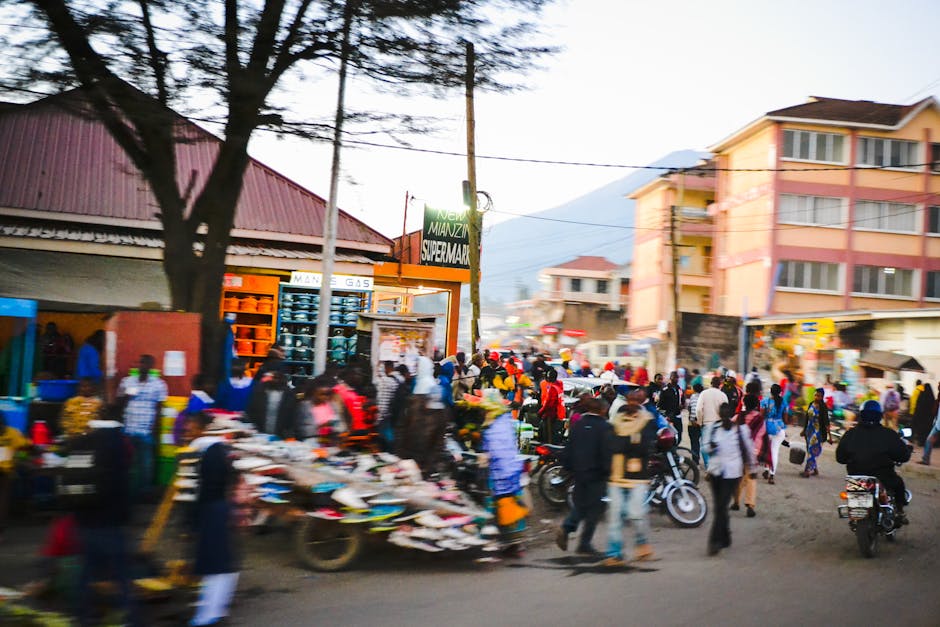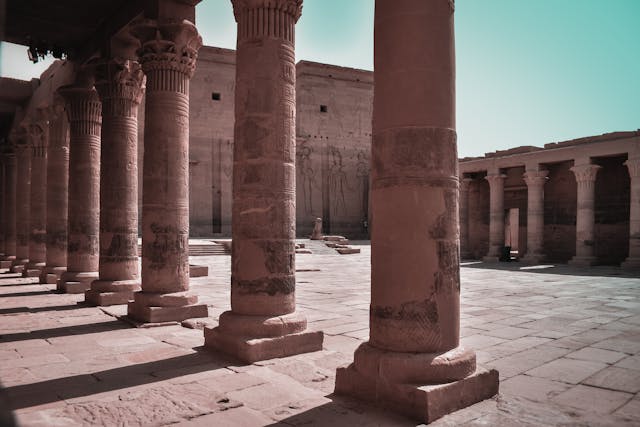
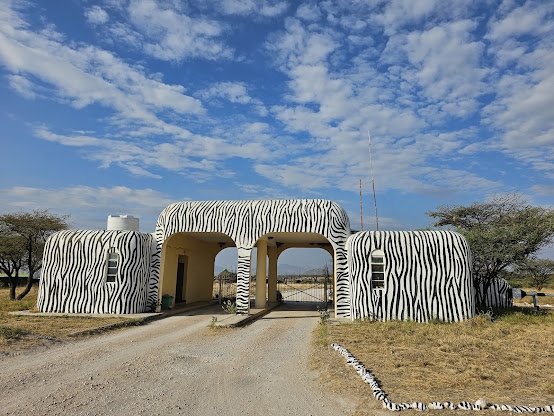
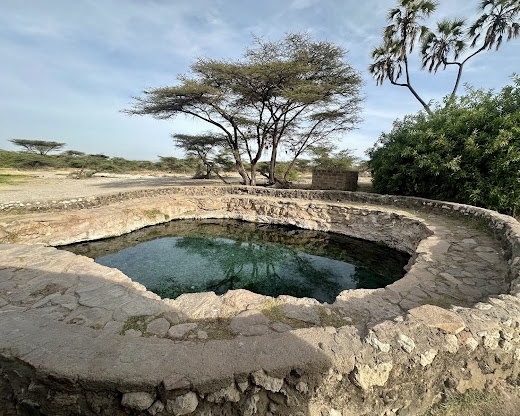
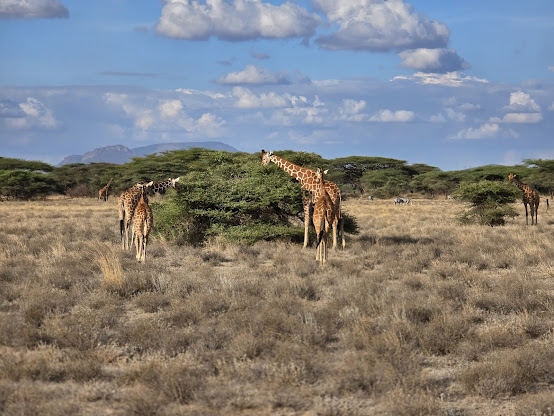
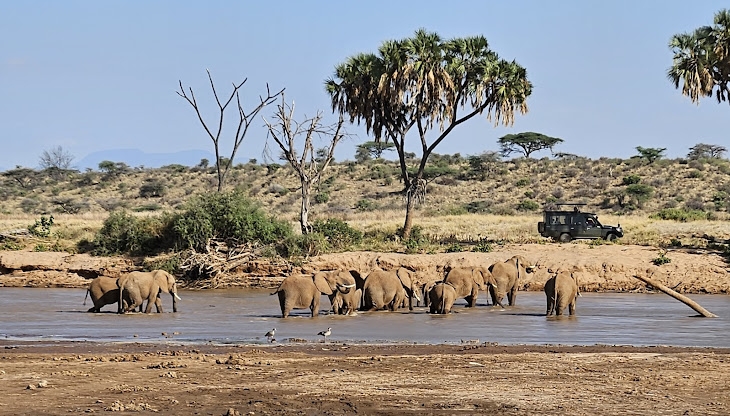
Buffalo Springs National Reserve: A Desert Oasis of Wildlife and Culture
History African@africanhistory
23 hours ago
Buffalo Springs National Reserve, established in 1948 and spanning 131 km² in Isiolo County, Kenya, offers a unique blend of arid landscapes, diverse wildlife, and rich cultural heritage. Located south of the Samburu National Reserve, it is named after a clear water spring at its western end. The reserve's terrain includes old lava flows, volcanic soils, and the Ewaso Ng'iro River, providing a habitat for a variety of species.
🦁 Wildlife and Birdlife
Buffalo Springs is home to a diverse array of wildlife, including:
Elephants: Abundant in the reserve.
Reticulated giraffes: Easily spotted.
Grant's zebra and Grevy's zebra: Both species are present.
Beisa oryx, Gerenuk, Greater and Lesser kudu, Oryx, Impala, Waterbuck, Eland, and Buffalo: Commonly found.
Predators: Lions, leopards, cheetahs, and hyenas are occasionally seen.
Birdlife: Over 365 species, including Somali ostriches, martial eagles, and Abyssinian ground hornbills.
The Ewaso Ng'iro River is home to hippopotamuses and crocodiles.
🌿 Flora and Terrain
The reserve's vegetation includes:
Riverine forest: Along the Ewaso Ng'iro River, featuring Tana River poplar, doum palm, and Acacia elatior.
Acacia tortilis woodland: Dominant in many areas.
Bushland: Characterized by Commiphora species.
Alkaline grasslands: Interspersed with occasional springs and swamps.
Notable flora includes the "Desert Rose" (Adenium obesum) and the Salvadora persica (tooth-brush tree), which provides food to elephants and is used by the local Samburu people for oral hygiene.
🏞️ Activities and Attractions
Visitors to Buffalo Springs can engage in various activities:
Game Drives: Explore the reserve's diverse habitats to observe wildlife.
Bird Watching: With over 365 species, it's a haven for bird enthusiasts.
Guided Nature Walks: Led by local guides, these walks offer insights into the ecosystem.
Cultural Visits: Engage with the local Samburu community to learn about their traditions.
Camping and Picnics: Enjoy outdoor meals amidst nature.
Photography Safaris: Capture the stunning landscapes and wildlife.
Additionally, visitors can swim in the natural springs, visit the Singing Wells, or climb Mount Ol Donyo Sabuk for panoramic views.
🗓️ Best Time to Visit
The optimal time to visit Buffalo Springs is during the dry seasons:
June to September: Ideal for wildlife viewing as animals congregate around water sources.
January to February: A short dry period suitable for safaris.
The wettest months are typically April and November, which may make wildlife viewing more challenging.
🏨 Accommodation Options
Buffalo Springs offers a range of accommodations:
Luxury Lodges: Such as Sarova Shaba Game Lodge, providing comfort and proximity to wildlife.
Tented Camps: Offering a more immersive experience in the wild.
Public Campsites: For those seeking a more rustic and budget-friendly option.
These accommodations provide opportunities to experience the reserve's beauty and wildlife up close.
🧭 Getting There
Buffalo Springs is approximately a 5-hour drive from Nairobi. The reserve is accessible via the A2 road, passing through Nanyuki and Isiolo. It's advisable to use a 4x4 vehicle due to the terrain. Alternatively, chartered flights can land at the nearby Samburu airstrip.
Buffalo Springs National Reserve offers a unique safari experience with its diverse wildlife, rich culture, and stunning landscapes. Whether you're a wildlife enthusiast, bird watcher, or cultural explorer, the reserve provides an unforgettable adventure in Kenya's northern frontier.
#BuffaloSpringsNationalReserve #KenyaSafari #WildlifeConservation #BirdWatchingKenya #SamburuCulture #KenyaTravel #OutdoorAdventure #PhotographySafari #CulturalExperience #NatureWalks
Photo Credit: Wikimedia

